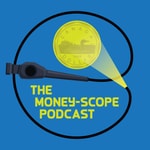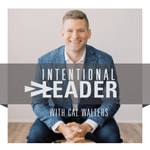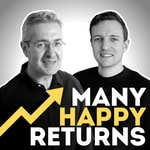The Money Scope Podcast – Details, episodes & analysis
Podcast details
Technical and general information from the podcast's RSS feed.

The Money Scope Podcast
Benjamin Felix & Dr. Mark Soth
Frequency: 1 episode/14d. Total Eps: 25

Recent rankings
Latest chart positions across Apple Podcasts and Spotify rankings.
Apple Podcasts
🇨🇦 Canada - investing
02/08/2025#53🇨🇦 Canada - investing
01/08/2025#49🇨🇦 Canada - investing
31/07/2025#42🇨🇦 Canada - investing
30/07/2025#45🇨🇦 Canada - investing
29/07/2025#42🇨🇦 Canada - investing
28/07/2025#42🇨🇦 Canada - investing
27/07/2025#28🇨🇦 Canada - business
27/07/2025#83🇨🇦 Canada - investing
26/07/2025#45🇨🇦 Canada - investing
25/07/2025#43
Spotify
No recent rankings available
Shared links between episodes and podcasts
Links found in episode descriptions and other podcasts that share them.
See allRSS feed quality and score
Technical evaluation of the podcast's RSS feed quality and structure.
See allScore global : 63%
Publication history
Monthly episode publishing history over the past years.
Ep 16: Live at IAFP 2024
Episode 16
vendredi 8 novembre 2024 • Duration 38:52
Today’s episode comes to you live from the 22nd Institute for Advanced Financial (IAFP) Planning Conference in Gatineau, Quebec, recorded in front of an audience of professional financial planners. For this special episode, we cover key planning issues for incorporated business owners and walk through the lifecycle of a business owner or professional who eventually chooses to incorporate. We discuss crucial financial decisions they face along the way, particularly as corporate assets begin to grow, and wrap up with a Q&A covering topics like tax brackets, salary offsets, and more. Our conversation also tackles common misconceptions and explains strategies for income smoothing, tax deferral, and managing 'corporate bloat.' With today’s conference theme inspired by Star Wars, expect plenty of niche references along the way!
Key Points From This Episode:
(0:00:17) Introducing the topics that will be covered in today’s special live episode at the 22nd Institute for Advanced Financial Planning Conference in Gatineau, Quebec.
(0:03:57) Guidelines and benefits of becoming incorporated, including income smoothing.
(0:06:49) Advice for navigating taxes when becoming incorporated.
(0:08:42) Common misconceptions that people have regarding getting incorporated.
(0:13:53) How to capitalize on the benefits of tax deferral in a corporation.
(0:16:24) Key insights on tax integration and eligible dividends.
(0:20:07) Achieving optimal compensation and how it solves the problem of “corporate bloat.”
(0:25:08) Ways to treat and prevent corporate bloat.
(0:28:47) The math behind Mark and Ben’s optimal compensation algorithms.
(0:32:08) Advantages of planning over products for solving optimal compensation.
(0:35:10) Audience questions and answers, from tax brackets to Star Wars.
Links From Today’s Episode:
Institute for Advanced Financial Planning Conference — https://iafpsymposium.ca/
Salary and Dividend Optimizer Calculator — https://www.looniedoctor.ca/ccpc-income-disperser/
‘Dividends To Maximize Your Corporate & Personal Cash Flow’ — https://www.looniedoctor.ca/2023/06/30/pay-dividends-corporation/#algorithm
Dr. Mark Soth (The Loonie Doctor) — https://www.looniedoctor.ca/
Dr. Mark on X — https://x.com/LoonieDoctor
Benjamin Felix — https://www.pwlcapital.com/author/benjamin-felix/
Benjamin on X — https://x.com/benjaminwfelix
Benjamin on LinkedIn — https://www.linkedin.com/in/benjaminwfelix/
Ep 15: Budget 2024: The Capital Gains Inclusion Rate
Episode 15
vendredi 31 mai 2024 • Duration 01:43:26
Understanding the implications of the 2024 Federal Budget and its proposed changes to capital gains taxation is crucial for individuals and corporations alike. In today’s episode, we take a deep dive into the Canadian federal budget for 2024 and its impact on capital gains taxation. In our conversation, we discuss the technical details of capital gains taxation and its historical context and offer practical advice for navigating the proposed changes in the 2024 federal budget. We discuss the increase in the capital gains inclusion rate and how these changes will affect individual investors and corporations. Discover the mechanics of capital gains tax in Canada, essential tax planning strategies, the importance of diversified tax exposure, and the concept of capital gains harvesting. Gain insights into the impact of the changes on the retirement plans of incorporated business owners and professionals, the role of optimal compensation in realizing capital gains, and approaches for navigating the proposed changes. Join us as we delve into the complexity of tax planning for incorporated business owners and the importance of long-term projections, personalized advice, and strategic decision-making for realizing a capital gain. Tune in now!
Key Points From This Episode:
(0:00:00) Overview of the changes and their relevance for Canadian investors.
(0:07:59) How capital gains tax works in Canada and its impact on taxable income.
(0:13:34) Reasons for the variation of capital gains inclusion rates.
(0:18:18) The differences in tax treatment for individuals versus corporations.
(0:22:41) Capital gains in a CCPC, how it works, and the role of a shareholder.
(0:29:36) Implications of the changes on Alternative Minimum Tax (AMT) in Canada.
(0:37:58) Learn about the ‘breakeven horizon’ and essential capital gain considerations.
(0:46:35) Capital gain harvesting and how optimal compensation ties into it.
(0:58:17) Explore the trade-offs of realizing a large capital gain and tax-reducing strategies.
(1:12:30) Hear case studies that illustrate the application of various tax-reducing strategies.
(1:29:56) Impact of capital gains inclusion rates on retirement planning for CCPCs.
(1:37:36) Final takeaways and tax planning recommendations.
Links From Today’s Episode:
Meet with PWL Capital: https://calendly.com/d/3vm-t2j-h3p
Dr. Mark Soth (The Loonie Doctor) — https://www.looniedoctor.ca/
Dr. Mark on X — https://x.com/LoonieDoctor
Benjamin Felix — https://www.pwlcapital.com/author/benjamin-felix/
Benjamin on X — https://x.com/benjaminwfelix
Benjamin on LinkedIn — https://www.linkedin.com/in/benjaminwfelix/
Episode 10 & 11: Case Conference — https://moneyscope.ca/2024/04/12/ep-10-11-case-conference-corporate-investing-puzzle-pieces/
Episode 13: Optimal Compensation from a CCPC — https://moneyscope.ca/2024/04/26/episode-13-optimal-compensation-from-a-ccpc/
Rational Reminder: Episode 304 — https://rationalreminder.ca/podcast/304
The Loonie Doctor Calculators — https://www.looniedoctor.ca/canadian-financial-calculators/#tax
Realize or Defer Capital Gains Calculator — https://research-tools.pwlcapital.com/research/realize-gain
Conquest Planning — https://conquestplanning.com
Ep.8 Case Conference: Choosing the Right Door
Episode 8
vendredi 8 mars 2024 • Duration 23:45
Today’s Case Conference accompanies an episode in which we provide a detailed breakdown of the registered account types available to Canadian investors and how to utilize them. Despite their numerous potential advantages, however, there are still many people who avoid them, primarily because optimizing these can seem too complicated and overwhelming. Our hope is that today’s episode will provide you with the confidence and knowledge you need to feel empowered to take the next steps in your investment journey. Tuning in, you’ll hear several case studies that address common concerns, like how to avoid having a Retirement Savings Plan (RRSP) that’s too big and how to navigate your RRSP and tax-free savings account (TFSA) as a high-income earner. We also get into Registered Education Savings Plans (RESPs), why group RESPs can be so predatory, how to plan your exit from a group RESP if you’re already in one, and more. For relatable examples of how to use these accounts, plus the many benefits of diversifying them, listen in today!
Key Points From This Episode:
(0:00:58) Our first case study concerning a technology company employee with restricted share limits (RSUs) as part of their expected compensation.
(0:02:02) Relevance for high-income earners and how to make decisions about RRSPs and TFSAs.
(0:05:35) A case study on two physicians with a young child who want to shift their investment plan from a group RESP to an individual RESP.
(0:06:59) The complexity of group RESPs, why they’re predatory, and how to plan your exit.
(0:12:56) Case study three: common fears of a too-big RRSP, especially for those who are incorporated.
(0:15:54) How to optimally use your RRSP or Registered Retirement Income Fund (RRIF) when it comes to tax deferral, tax sheltering, and taking dividends out of your corporation.
(0:17:45) Controlling the income from a corporation, paying yourself dividends, and how to ensure you aren’t penalizing yourself.
(0:19:09) Rational Reminder Episode 70 and key takeaways on how to avoid a too-big RRSP.
(0:21:10) A rundown of the many benefits of diversifying your accounts.
Links From Today’s Episode:
Money Scope Episode 8 — https://moneyscope.ca/episode-8-canadian-investment-accounts
Rational Reminder: Episode 70 — https://rationalreminder.ca/podcast/70
Dr. Mark Soth (The Loonie Doctor) — https://www.looniedoctor.ca/
Dr. Mark on X — https://twitter.com/LoonieDoctor
Benjamin Felix — https://www.pwlcapital.com/author/benjamin-felix/
Benjamin on X — https://twitter.com/benjaminwfelix
Benjamin on LinkedIn — https://www.linkedin.com/in/benjaminwfelix/
Ep. 8 Canadian Investment Accounts
Episode 8
vendredi 1 mars 2024 • Duration 01:29:05
One of the most complex things to navigate when it comes to your personal finances is your choice of accounts and how to use them in the best way possible. In today’s episode, we break down the types of accounts available to Canadian investors and how to optimize your use of each one. Tuning in, you’ll learn key factors you should consider, including how tax deferral can end up being neutral, beneficial, or harmful — depending on the difference between your current and future tax rate — along with actionable advice on how to navigate these kinds of variables and uncertainty. Starting off, the conversation covers the benefits and drawbacks of tax-free savings accounts (TFSAs) and why it’s one of the first accounts you should consider when investing. We then delve into a series of accounts and their characteristics, like Registered Retirement Savings Plans (RRSPs), Registered Retirement Income Funds (RRIFs), and Locked-in Retirement Accounts (LIRAs). Included is a breakdown of the newly legislated First Home Savings Account (FHSA) and how it combines features from both TFSAs and RRSPs to basically create a tax-elimination type of account. Every account has its own set of distinct rules, from contribution limits to withdrawal freedoms and flexibility. To ensure that you’re up to date on all the latest, tune in for this comprehensive breakdown of everything from TFSAs to RESPs!
Key Points From This Episode:
(0:03:21) A breakdown of registered and non-registered accounts.
(0:08:59) The benefits and drawbacks of tax-free savings accounts (TFSAs) and why it’s one of the first accounts you should consider.
(0:14:30) Being able to withdraw from your TFSA, why that makes it really flexible in terms of how it can be used, and how to avoid over-contribution.
(0:18:48) The risks of speculating and trading in your TFSA and the perks later in life when growing a large TFSA slowly over time with more reliable returns.
(0:25:41) Further nuances of investment taxation that you need to know about with TFSAs.
(0:29:07) A breakdown of Registered Retirement Savings Plans (RRSPs), their main attributes, and what you need to know about contribution room and deduction limits.
(0:33:47) Why tax deferral can be neutral, beneficial, or harmful, depending on the difference between your current and future tax rate.
(0:36:45) Tax planning opportunities, comparing TFSAs with RRSPs, and key facts about spousal RRSPs and converting RRSPs to Registered Retirement Income Funds (RRIFs).
(0:48:12) A rundown of Locked-in Retirement Accounts (LIRAs) and Life Income Funds (LIFs).
(0:50:06) The advantages and disadvantages of the newly legislated First Home Savings Account (FHSA).
(0:56:14) Everything you need to know about Registered Education Savings Plans (RESPs) and the Canadian Education Savings Grant (CESG).
(01:09:54) How RESPs are similar to TFSAs from a tax perspective, and what happens when your child doesn’t pursue a post-secondary education.
(01:15:50) High-level commentary on Registered Disability Savings Plans (RDSPs).
(01:17:26) What high-income Canadians need to consider when it comes to taxes, asset allocation, and tax optimization.
(01:23:19) A review of today’s content and what we’ll be discussing next time.
Links From Today’s Episode:
https://moneyscope.ca/episode-8-canadian-investment-accounts
Dr. Mark Soth (The Loonie Doctor) — https://www.looniedoctor.ca/
Dr. Mark on X — https://twitter.com/LoonieDoctor
Benjamin Felix — https://www.pwlcapital.com/author/benjamin-felix/
Benjamin on X — https://twitter.com/benjaminwfelix
Benjamin on LinkedIn — https://www.linkedin.com/in/benjaminwfelix/
Intermission Episode
Episode 8
vendredi 23 février 2024 • Duration 20:05
In this special episode of the Money Scope Podcast, we take a break from their regular content to reflect on the journey so far and engage with our audience. As we pause to catch our breath halfway through the planned core curriculum, we discuss the evolution of the podcast, share listener feedback, and offer insights into what lies ahead. We outline topics covered in the initial episodes, ranging from goal setting to investment basics, and highlight the upcoming shift towards more Canadian-focused content. We express gratitude for the enthusiastic response from our audience and discuss the impact the podcast has had on listeners' financial decision-making and life trajectories. We also share excerpts from listener reviews, address mixed opinions on certain aspects of the podcast, unpack the value of research-backed insights tailored to Canadian professionals, and much more. To uncover the future of the podcast and find out how you can help shape it, tune in now!
Key Points From This Episode:
-
Introduction and outline of the theme for today’s episode. (0:00:17)
-
Feedback, platform features, and engagement from listeners. (0:02:20)
-
The Money Scope Podcast versus Rational Reminder. (0:06:45)
-
Ben responds to feedback regarding his view on dividend investing. (0:07:40)
-
Mark shares his view on dividends and factor-weighted ETFs. (0:09:30)
-
Feedback on the podcast's theme, style, and approach. (0:11:59)
-
Review of the mixed feedback received about the show. (0:14:59)
-
Get a sneak peek of upcoming episodes. (0:17:30)
Links From Today’s Episode:
The Money Scope Podcast — https://moneyscope.ca/
The Money Scope Podcast on YouTube — https://www.youtube.com/@moneyscopepod
The Money Scope Podcast on Apple Podcasts — https://podcasts.apple.com/ca/podcast/the-money-scope-podcast/id1721425088
The Money Scope Podcast Email — info@moneyscope.ca
Rational Reminder Community — https://community.rationalreminder.ca/
Dr. Mark Soth (The Loonie Doctor) — https://www.looniedoctor.ca/
Dr. Mark on X — https://twitter.com/LoonieDoctor
Benjamin Felix — https://www.pwlcapital.com/author/benjamin-felix/
Benjamin on X — https://twitter.com/benjaminwfelix
Benjamin on LinkedIn — https://www.linkedin.com/in/benjaminwfelix/
Ep. 7 Case Conference: Big decisions with real money
Episode 7
vendredi 16 février 2024 • Duration 19:26
In this episode, we follow the stories of two distinct investors facing unique challenges. First, meet a plastic surgeon in the high-flying tech-driven world of 1997. With a high-risk tolerance and a flourishing practice, this surgeon believes they can conquer the market. However, as the dot-com bubble looms, they must navigate the fine line between risk and reward, teaching us vital lessons about diversification, leverage, and the challenges of the market. Next, explore the journey of a savvy business owner who sold their company at just the right time, amassing substantial cash. Cautious due to past stock market losses, this investor seeks to protect their newfound wealth. We discuss the delicate balance of risk tolerance, financial independence, and how to construct a portfolio that aligns with individual objectives. Throughout these stories, listeners will gain insights into asset allocation, the psychology of risk, and the importance of rebalancing during market turbulence. To discover principles that will help you make informed investment decisions and steer your financial future toward success, tune in today!
Key Points From This Episode:
(0:01:21) Case study one: a plastic surgeon with high-risk tolerance and a successful practice.
(0:02:12) Why they should diversify investments and avoid excessive amounts of risk.
(0:05:10) How human bias plays into decision-making in our first case study.
(0:07:31) An essential lesson from our first case: know your risk tolerance.
(0:11:28) Case study two: an entrepreneur who sold their business and has a significant amount of cash on hand.
(0:12:13) How they should structure their portfolio to safeguard their financial health.
(0:15:55) Benefits of rebalancing and why it is vital, even during a volatile market.
(0:17:59) Closing comments and key takeaways.
Links From Today’s Episode:
https://moneyscope.ca/2024/02/16/ep-7-case-conference-big-decisions-with-real-money/
Benjamin Felix — https://www.pwlcapital.com/author/benjamin-felix/
Benjamin on X — https://twitter.com/benjaminwfelix
Benjamin on LinkedIn — https://www.linkedin.com/in/benjaminwfelix/
Dr. Mark Soth (The Loonie Doctor) — https://www.looniedoctor.ca/
Dr. Mark on X — https://twitter.com/LoonieDoctor
Ep. 7: Portfolio Design & Management
Episode 7
vendredi 9 février 2024 • Duration 02:01:21
Picture your investment portfolio as a carefully crafted puzzle and asset allocation as the key to solving it. It not only helps you navigate the treacherous waters of risk but fine-tunes your investments to harmonize perfectly with your financial dreams. In this episode, we take a deep dive into the art and science of portfolio management. Discover the intricacies of portfolio planning, execution, and maintenance as we dissect this critical aspect of wealth management. We unpack asset allocation with a focus on the stocks-to-bonds ratio, a crucial decision that balances the quest for maximum returns with the need for stability. We uncover the dangers of volatility and behavioural risks and explore strategies to safeguard your financial health. Tuning in, you’ll hear how assessing your risk tolerance and automating tasks can lead to a well-crafted portfolio (and why we suggest using a portfolio manager). We also guide you through the maze of asset allocation options and the vital steps for effective portfolio maintenance. Whether you're a seasoned investor or just beginning your financial journey, this episode will equip you with the knowledge you need to navigate the complexities of portfolio management with confidence, so be sure to tune in for expert insights, practical strategies, and actionable advice that will empower you to make informed decisions about your financial health!
Key Points From This Episode:
(0:03:55) Portfolio planning basics, an overview of risk, and the goal of asset allocation.
(0:08:07) Unpacking the concept of ‘optimal portfolios’ and why it is not achievable.
(0:14:13) Essential asset allocation aspects, the role of human capital, and strategies to manage risk.
(0:20:41) Individualized job skills and their impact on asset allocation in the broader economy.
(0:24:54) How social capital plays into asset allocation from an investment standpoint.
(0:28:25) Risk expected return, correlation of assets in a portfolio, and the different types of risk that should be considered.
(0:36:03) Using historical returns for forecasting expected returns and the nuanced ways that behaviour drives investment decisions.
(1:04:04) Applying asset allocation principles to construct a diversified, market-efficient portfolio (plus some common pitfalls to avoid).
(1:19:13) Trade-offs of a less volatile portfolio and a framework for risk tolerance calculation.
(1:34:45) Fundamentals of good portfolio maintenance and how to protect your investments.
(1:50:36) Navigating portfolio execution errors and the portfolio pyramid.
(1:56:32) Closing comments and important takeaways from the episode.
Links From Today’s Episode:
https://moneyscope.ca/2024/02/09/episode-7-portfolio-design-management/
Benjamin Felix — https://www.pwlcapital.com/author/benjamin-felix/
Benjamin on X — https://twitter.com/benjaminwfelix
Benjamin on LinkedIn — https://www.linkedin.com/in/benjaminwfelix/
Dr. Mark Soth (The Loonie Doctor) — https://www.looniedoctor.ca/
Dr. Mark on X — https://twitter.com/LoonieDoctor
Rational Reminder Podcast Episode 100: Professor Kenneth French — https://rationalreminder.ca/podcast/100
Rational Reminder Podcast Episode 224: Professor Scott Cederburg — https://rationalreminder.ca/podcast/224
Rational Reminder Podcast Episode 258: Professor Meir Statman — https://rationalreminder.ca/podcast/258
Rational Reminder Podcast Episode 260: Professor James Choi — https://rationalreminder.ca/podcast/260
Rational Reminder Podcast Episode 262: Professor Francisco Gomes — https://rationalreminder.ca/podcast/262
Rational Reminder Podcast Episode 263: A Tribute to Harry Markowitz — https://rationalreminder.ca/podcast/263
Morningstar | ‘Mind the Gap’ — https://www.morningstar.com/lp/mind-the-gap
‘Long-Horizon Losses in Stocks, Bonds, and Bills: Evidence from a Broad Sample of Developed Markets' — https://papers.ssrn.com/sol3/papers.cfm?abstract_id=3964908
Vanguard Investor Questionnaire — https://investor.vanguard.com/tools-calculators/investor-questionnaire
Ep. 6 Case Conference: This Investment is Hot
Episode 6
vendredi 2 février 2024 • Duration 37:22
After our detailed examination of the basics of investment strategy, we are now delving into some common case studies that you may encounter on your investing journey. Our studies take us through the looming recession and why it should not be a major concern for investors, the economic activity of America’s response to a recession, and deciding on how much, with whom, and when you should invest your money. We also critically assess what you need to be aware of before seeking a lower-cost investment model, how to save while making donations, value versus growth, and what Ben and Mark have to say about a particular hot investment idea.
Key Points From This Episode:
(0:00:49) Why the looming recession has many people worried about investing.
(0:01:45) How a recession affects market prices, and why this isn’t a major concern.
(0:02:58) America’s economic behaviours in and around a recession.
(0:07:13)Talking through a rationally optimal approach and an emotionally optimal approach.
(0:09:08) Whether to invest it all at once or gradually enter the market.
(0:11:05) Everything you need to consider if you’re looking for a lower-cost model.
(0:23:28) Capital gains and other tax implications to note when altering a retirement portfolio.
(0:28:52) A quick look at a smarter way of making charitable donations.
(0:30:06) Debunking the hot investment idea.
(0:34:09) Value versus growth.
Links From Today’s Episode:
https://moneyscope.ca/2024/02/02/ep-6-case-conference-this-investment-is-hot-or-not/
Benjamin Felix — https://www.pwlcapital.com/author/benjamin-felix/
Benjamin on X — https://twitter.com/benjaminwfelix
Benjamin on LinkedIn — https://www.linkedin.com/in/benjaminwfelix/
PWL Capital — https://www.pwlcapital.com/
Dr. Mark Soth (The Loonie Doctor) — https://www.looniedoctor.ca/
Dr. Mark on X — https://twitter.com/LoonieDoctor
Ep. 6: Key Investing Concepts
Episode 6
vendredi 26 janvier 2024 • Duration 01:17:50
Today’s episode is a colonoMoneyScope as we dig deep into the basics of investment strategy. But we’ve already laid the foundation (in previous episodes) and the hard work is done, and we are now moving onto a necessary procedure for the preventive care of your investment portfolio. It’s important to understand why we invest and why it matters in our lives, why fear and risk are not necessarily bad things, the differences between investing and gambling, and the inherently speculative nature of investments. After that, you’ll learn about financial assets, the ins and outs of stocks and bonds, the efficient market hypothesis, and the two risk types that you need to understand before investing. We also discuss diversification, passive investing and active investing, the two key investment vehicles, and everything you need to know about investment costs. With the wealth of information that we cover in this episode, and with far less discomfort than the standard colonoscopy, we deem this colonoMoneyScope operation a resounding success!
Key Points From This Episode:
(0:03:35) Why we invest; why it’s important.
(0:07:16) Addressing fear and risk: a prevalent theme throughout the episode.
(0:08:40) Investing versus gambling, and why it’s important to know the difference.
(0:12:59) Why people still choose to gamble even with the high loss probability.
(0:15:18) How all investments are speculative by nature, but some more so than others.
(0:21:35) Everything you need to know about financial assets.
(0:31:09) The ins and outs of stocks and bonds.
(0:38:26) Understanding the efficient-market hypothesis.
(0:46:18) The two risks that matter for investing, and how diversification fits in.
(0:50:35) A brief recap of everything we’ve covered so far.
(0:51:21) Passive investing versus active investing, and how to pick the right fund manager.
(1:02:58) Two crucial investment vehicles: mutual funds and exchange-traded funds (ETFs).
(1:06:08) Taking a closer look at investment costs.
(1:14:15) Our post-colonoMoneyScope briefing.
Links From Today’s Episode:
https://moneyscope.ca/2024/01/26/episode-6-key-investing-concepts/
Benjamin Felix — https://www.pwlcapital.com/author/benjamin-felix/
Benjamin on X — https://twitter.com/benjaminwfelix
Benjamin on LinkedIn — https://www.linkedin.com/in/benjaminwfelix/
PWL Capital — https://www.pwlcapital.com/
Dr. Mark Soth (The Loonie Doctor) — https://www.looniedoctor.ca/
Dr. Mark on X — https://twitter.com/LoonieDoctor
Angus Reid Institute | Retirement in Canada — https://angusreid.org/wp-content/uploads/2015/06/2015.05.15-Retirement.pdf
‘Individual differences in susceptibility to financial bullshit’ — https://www.sciencedirect.com/science/article/pii/S2214635022000193
Meir Statman on LinkedIn — https://www.linkedin.com/in/meir-statman-17967b/
‘Episode 258: Prof. Meir Statman: Financial Decisions for Normal People’ — https://rationalreminder.ca/podcast/258
2022 Management Report of Fund Performance — https://www.blackrock.com/ca/investors/en/literature/annual-mrfp/mrfp-xus-en-ca.pdf
Ep. 5 Case Conference: Debt, Saving, Investing
Episode 5
vendredi 19 janvier 2024 • Duration 23:06
Today’s show features our first case conference supplemental episode. We’ve built several cases, complete with figures, to expand upon our primary episode's discussions on debt, saving, and investing. These scenarios reflect common queries and challenges we frequently encounter from our audience. While we hope you can draw parallels to your own circumstances from these cases, it's crucial to understand that this isn't personalized advice. We aren't offering specific recommendations. However, our goal is for you to find elements in these cases that resonate and assist you in navigating your own financial journey, whether independently or with a consultant. Our first case study is one that many people will be able to relate to. We focus on a recent graduate, with a substantial amount of debt, with no investments or savings, and break down how they should go about navigating their financial wealth journey. Tuning in you’ll hear a breakdown of the numbers for this case study, how to build competence and a financial plan, how your tolerance for debt will influence your financial decisions, plus a whole lot more. Join us for our first in-depth case study as a supplement to our main episode!
(0:00:17) Introducing our first case conference supplemental episode.
(0:00:50) An overview of our first case study concerning a recent graduate with a lot of debt.
(0:02:13) How to go about building competence and a plan in this scenario.
(0:05:05) A breakdown of the case numbers after earning some revenue.
(0:08:25) The next steps to take after shrinking debt and stabilizing cash flow when you start feeling the pressure to invest.
(0:11:09) The mid-career mortgage dilemma and advice on how to manage it.
(0:17:01) Guidance on taking advantage of the ability to get money out of your corporation tax efficiently.
(0:20:50) The psychological effect of debt and the importance of taking this into consideration.
(0:21:36) How your individual perspective should impact your financial planning decisions and the financial advisor you partner with.
Links From Today’s Episode:
Benjamin Felix — https://www.pwlcapital.com/author/benjamin-felix/
Benjamin on X — https://twitter.com/benjaminwfelix
Benjamin on LinkedIn — https://www.linkedin.com/in/benjaminwfelix/
Dr. Mark Soth (The Loonie Doctor) — https://www.looniedoctor.ca/
Dr. Mark on X — https://twitter.com/LoonieDoctor
Money Scope Episode 5 — https://moneyscope.ca/2024/01/12/episode-5-debt-saving-investing/
Rational Reminder Episode 226: Colonel Chris Hadfield — https://rationalreminder.ca/podcast/226
Medical Student Debt Repayment in Early Practice — https://www.looniedoctor.ca/2022/12/30/medical-student-debt-repayment-2/









